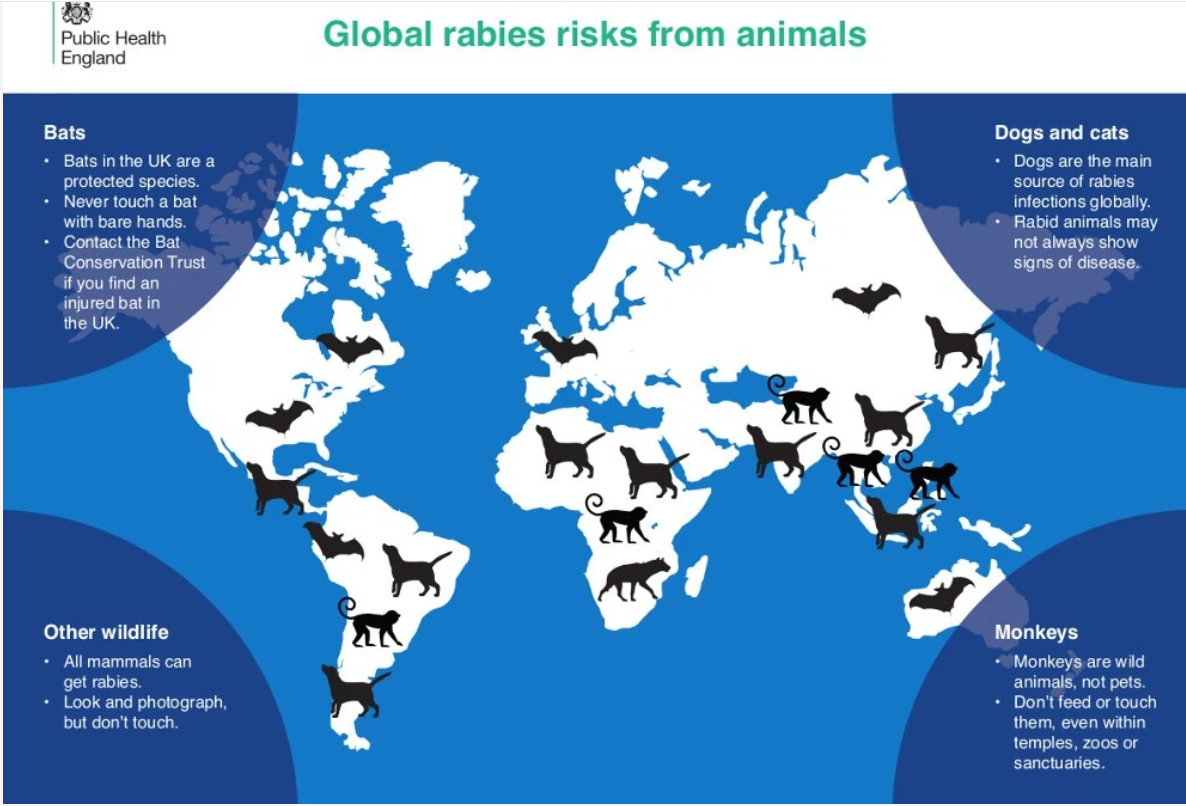Be Rabies Aware – World Rabies Day, 28th September
Posted on:
This event is a chance to spread awareness and help keep people safe, especially when travelling abroad.
What is rabies?
- Rabies is a life-threatening viral infection spread to humans through the bite or scratch of an infected animal, most often a dog.Once symptoms appear, rabies is almost always fatal. Globally, it is estimated to cause around 59,000 deaths each year – that’s roughly one person every nine minutes.
- Once symptoms appear, rabies is almost always fatal. Globally, it is estimated to cause around 59,000 deaths each year – that’s roughly one person every nine minutes.
- While rabies is rare in the UK, risks remain both abroad and at home.
Am I at risk when travelling?
- Rabies is present worldwide (apart from Antarctica), with the greatest risk in countries where the virus is widespread in dogs, such as many parts of Asia and Africa.
- Although rabies in travellers is uncommon, animal bites and scratches are not. Travellers should understand the risks and be prepared.
- Each year in England, about 2,000 people need treatment after possible rabies exposure – most following incidents abroad, but over 10% after potential contact with bats in the UK.
- If you are bitten or scratched by an animal, or have close contact with a bat, seek medical advice urgently.
Protecting yourself against rabies
Before you travel
Talk to either your GP, Practice Nurse or Ask Aileen about rabies vaccination if you:
- Are travelling to a country where rabies treatment may be difficult to access
- Plan to do outdoor activities like running, cycling, or camping
- Will be staying abroad for longer than a month
While travelling
- Avoid contact with wild or stray animals – including dogs, cats, monkeys, and bats.
- Never feed or handle animals, as this increases the risk of bites or scratches.
- If bitten or scratched, wash the wound thoroughly with soap and water for several minutes, apply disinfectant, cover it, and get medical help straight away. Prompt treatment after exposure is highly effective if given quickly.
Which animals can spread rabies?
Any warm-blooded animal can become infected, including dogs, cats, bats, monkeys, and other wildlife. The safest approach is to avoid touching animals when travelling, even if they appear friendly.
The map below shows some of the animals that can pass rabies on to humans:

For more information and advice